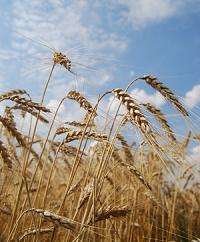People in conflict zones among most at risk of hunger

With the latest World Bank food price report charting a 33 percent rise in the cost of food since last year, food security is becoming an increasing global concern.
Dr. Monika Barthwal-Datta, a Postdoctoral Research Fellow from the University of Sydney's Center for International Security Studies (CISS), says people living in conflict zones are among those most vulnerable to the soaring price of staple foods.
"Communities in conflict have less access to food because their agricultural lands are being destroyed and their infrastructure is being destroyed. Marginalized and poor communities are even further disadvantaged," Dr. Barthwal-Datta told ABC Radio National's PM program.
Dr. Barthwal-Datta is leading the CISS 'Food Security in Asia' Project, a two-year venture funded by the MacArthur Foundation examining how political, economic, demographic and environmental pressures will impact food security dynamics in the region in the coming decades, and the consequences of this for regional stability.
The project is working to understand the poorly-understood links between food supply and demand, and political instability and human insecurity.
Following on from this research, Dr. Barthwal-Datta says Asia is one of the most vulnerable regions to food insecurity in the world. With people in the region spending up to 80 percent of their income on food, food price spikes are potentially devastating and can make buying food impossible.
"Asia is not only home to the majority of the poor in the world, it's also home to the largest number of the hungry in the world," Dr. Barthwal-Datta told PM. "About 62 percent of the world's hungry live in the Asia-Pacific region.
"We know that states in the region haven't been very good at managing their food insecurity problems, yet at the same time there's huge potential within the region to move towards greater food security by investing in agriculture and smallholder farmers, to not only increase food production but to actually support the livelihoods of these people."
Provided by University of Sydney


















